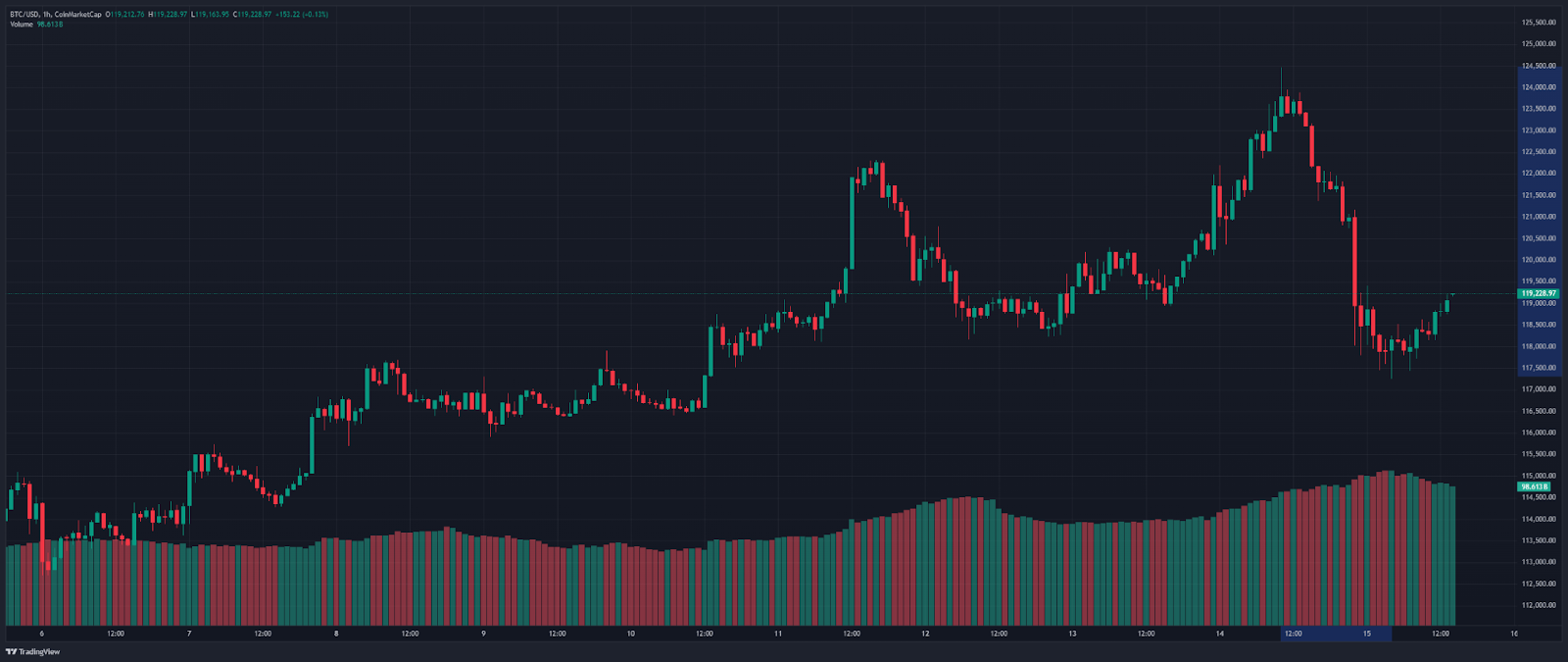Bitcoin’s Volatile Market Reaction After Record Highs
Bitcoin, the leading cryptocurrency, surged to an unprecedented peak of US$124,457 (approximately AU$191,423) on Thursday but faced a swift correction, plummeting to US$117,477 (around AU$180,693) early Friday—a notable 5% decline within mere hours. As of the latest updates, Bitcoin had somewhat recovered, trading at US$119,226 (AU$183,384), representing a slight 2% increase for the week, as per CoinMarketCap data.

The rapid price drop was spurred by remarks from US Treasury Secretary Scott Bessent during a CNBC interview, where he confirmed that the government would not pursue Bitcoin for its strategic reserves. This statement, reinforcing perspectives previously stated by officials, disappointed numerous investors who had hoped for governmental backing or acquisition of Bitcoin as a reserve asset.
In a tweet highlighting the situation, crypto commentator Walker remarked on Bessent’s position: "Treasury Secretary Scott Bessent says the U.S. will not be buying any Bitcoin. They will hold the $15-$20 billion in Bitcoin they already have." This sentiment resonated within the crypto community, with many interpreting the message as indicative of the government’s reluctance to fully embrace Bitcoin.
Following the initial backlash from the market, Bessent issued clarifying statements, stressing the Treasury’s commitment to seeking “budget-neutral” methods for Bitcoin acquisition while also alluding to the ambition of establishing the US as a "Bitcoin superpower." However, many analysts, including Jacob King—a prominent voice in the cryptocurrency space with a significant following—criticised this stance. He labelled the remarks as market manipulation and expressed disappointment, noting that the government’s apparent indecisiveness only fuels negative sentiment among investors.
Matt Hougan, Chief Investment Officer at Bitwise, highlighted the overarching challenge of governmental adoption as a critical element missing in Bitcoin’s institutional ascent. While exchange-traded funds (ETFs) and corporations have begun to engage with Bitcoin more actively, government involvement remains subdued, contrasting sharply with broader trends aimed at integrating digital assets into public policy.
Hougan is optimistic that some governments might start incorporating Bitcoin into their treasuries by the end of the year, a development that could potentially drive prices upwards. Influential factors guiding this trajectory could include anticipated cuts in interest rates, a weakening US dollar, and increased money supply, all of which could promote Bitcoin’s recognition as a safe-haven asset alongside gold.
As the cryptocurrency market continues to navigate these fluctuations, the interplay of governmental policy, market sentiment, and economic indicators will remain crucial in shaping the future landscape of Bitcoin and its role in the broader financial ecosystem.

